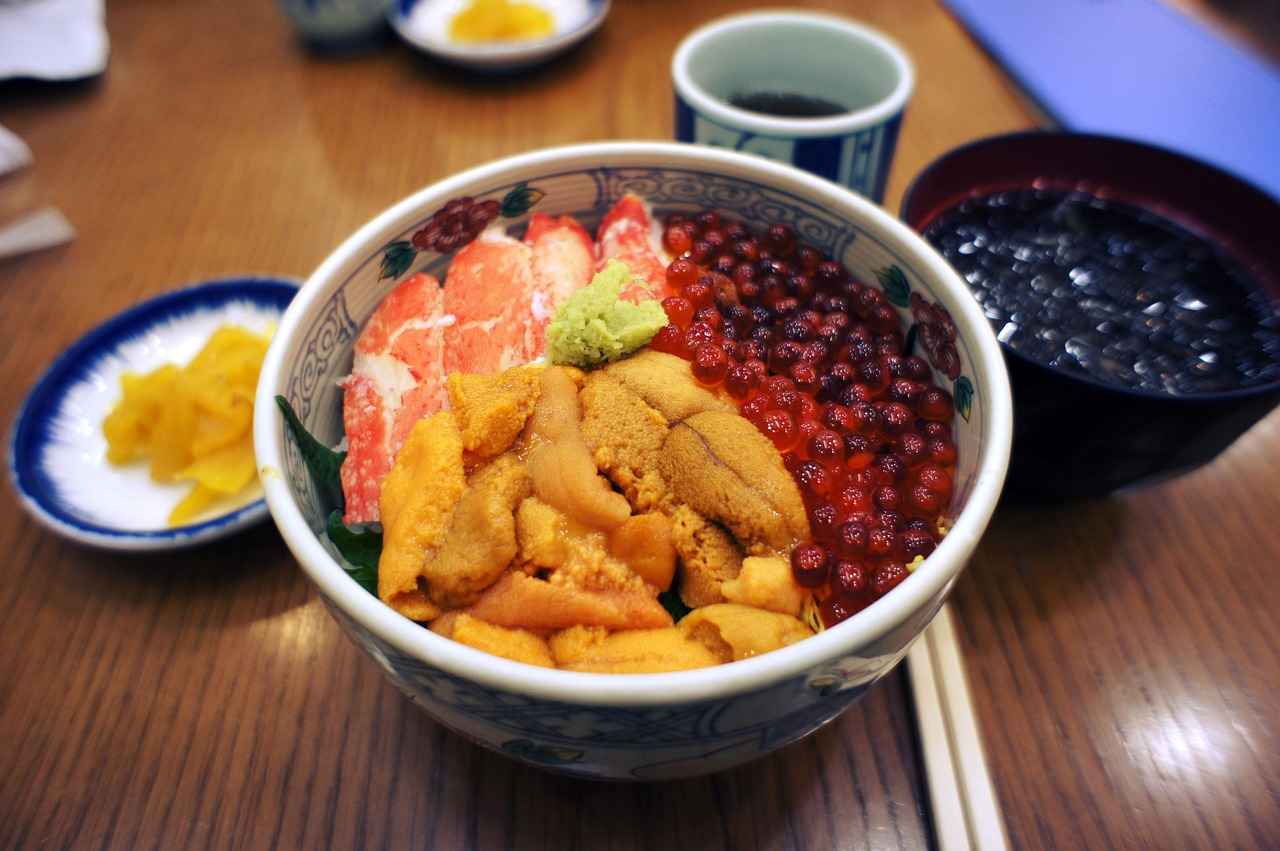This article delves into the complex character of Sukuna from Jujutsu Kaisen, exploring his motives, actions, and the possibility of a deeper narrative beyond mere villainy.
The Complexity of Sukuna’s Character
Sukuna is not just a typical antagonist; his character is layered with complexities that challenge the traditional notions of good and evil in Jujutsu Kaisen. He embodies a blend of fear and charisma, making him a compelling figure in the series.
Understanding Sukuna’s Origins
To grasp Sukuna’s motives, it’s essential to explore his origins and the historical context that shaped him into the formidable figure he is in the series. His backstory reveals a character forged in the fires of conflict and power struggles.
The Legend of Ryomen Sukuna
The lore surrounding Ryomen Sukuna provides insights into his duality as both a feared curse and a significant figure in jujutsu history, revealing the nuances of his character. This duality raises questions about the nature of curses and their role in the jujutsu world.
Sukuna’s Role in the Jujutsu Society
Sukuna’s impact on the jujutsu society is profound, as his existence raises questions about the balance of power and the nature of curses in the world of Jujutsu Kaisen. His presence forces other characters to confront their beliefs about strength and morality.
Comparative Analysis with Other Villains
By comparing Sukuna to other villains in the series, we can better understand his unique motivations and the philosophical dilemmas he presents to protagonists. Unlike other antagonists, Sukuna’s goals are shrouded in mystery, making him unpredictable.
The Evolution of Sukuna’s Relationships
Sukuna’s interactions with key characters, particularly Yuji Itadori, highlight the complexity of his motivations and the potential for unexpected alliances or conflicts. Their relationship is a central theme that adds depth to the narrative.
Sukuna’s Goals and Ambitions
Examining Sukuna’s goals reveals a character driven by more than just chaos; his ambitions reflect a deeper understanding of power and existence within the jujutsu world. His relentless pursuit of strength prompts viewers to question the morality of his actions.
Exploring the Concept of Freedom
Sukuna’s desire for freedom intertwines with his actions, suggesting that his villainy may stem from a quest for autonomy in a world that seeks to control him. This quest for freedom adds layers to his character, making him more relatable.
The Philosophical Implications of Sukuna’s Actions
Sukuna’s actions raise significant philosophical questions about morality, existence, and the nature of curses, challenging viewers to reconsider their perceptions of villainy. His moral ambiguity invites discussions about the nature of good and evil.
Impact on Jujutsu Kaisen’s Narrative
Sukuna’s presence significantly impacts the overarching narrative of Jujutsu Kaisen, shaping character arcs and thematic explorations throughout the series. His influence is felt in every major conflict, making him a pivotal character.
Conclusion: Is Sukuna More Than Just a Villain?
Ultimately, Sukuna’s character transcends traditional villainy, embodying themes of power, freedom, and moral complexity that enrich the narrative of Jujutsu Kaisen, leaving audiences questioning his true motives.

The Complexity of Sukuna’s Character
Sukuna’s True Motives in Jujutsu Kaisen: Is He More Than Just a Villain?
Sukuna is not merely a conventional antagonist; rather, his character is intricately woven with complexities that challenge the traditional notions of good and evil in Jujutsu Kaisen. This multifaceted portrayal invites viewers to explore the nuances of his motives, actions, and the underlying narrative that extends beyond simple villainy.
At first glance, Sukuna may appear to be a typical villain, driven by chaos and destruction. However, a deeper examination reveals a character whose actions are often rooted in a desire for freedom and self-determination. His disdain for authority and societal norms prompts viewers to question the morality of his actions and the nature of true strength.
Moreover, Sukuna’s interactions with other characters, especially Yuji Itadori, further complicate his portrayal. Their relationship oscillates between adversarial and cooperative, suggesting that Sukuna’s motives may not be as straightforward as they seem. This dynamic adds layers to his character, making him a pivotal figure in the narrative.
As we delve into Sukuna’s origins, we uncover the historical context that shaped him into the formidable figure he is today. The legend of Ryomen Sukuna not only highlights his duality as both a feared curse and a significant figure in jujutsu history but also reveals the complexities that define his character.
In conclusion, Sukuna’s character transcends the conventional boundaries of villainy. His layered motives and philosophical implications challenge viewers to rethink their perceptions of morality and power, enriching the narrative of Jujutsu Kaisen and leaving audiences pondering the true essence of his character.

Understanding Sukuna’s Origins
is crucial to unraveling the intricate web of motives that define one of the most compelling characters in Jujutsu Kaisen. To truly appreciate Sukuna’s actions and intentions, we must delve into his historical context and the events that shaped him into the formidable curse he is today.
Sukuna, known as Ryomen Sukuna, was once a human sorcerer who lived during the Heian period, a time marked by powerful jujutsu practitioners and formidable curses. His rise to power was not merely a result of his immense strength, but also the culmination of a complex relationship with the world around him. This era was rife with conflict, and Sukuna thrived in an environment where curses were both feared and revered.
The legend of Sukuna paints him as a dual figure—both a feared curse and a significant player in the history of jujutsu. His transformation into a curse was not an accident; rather, it was a reflection of the chaos and destruction that surrounded him. As he battled other sorcerers and curses, his reputation grew, and so did the fear he instilled in others. This fear solidified his status, but it also isolated him, creating a complex dynamic that would influence his motives.
Moreover, the historical context of jujutsu during Sukuna’s time plays a pivotal role in understanding his character. The Heian period was characterized by a struggle for power among sorcerers, and Sukuna’s actions were often a response to the threats posed by others. This backdrop of competition and survival shaped his worldview, making him a product of his environment.
In the present day, Sukuna’s legacy continues to impact the jujutsu society, raising questions about the nature of curses and the balance of power. His existence serves as a reminder of the complexities of morality in a world where good and evil are often intertwined.
Ultimately, understanding Sukuna’s origins allows us to see him not just as a villain, but as a character shaped by his past, driven by motives that go beyond mere chaos. His journey prompts viewers to reflect on the deeper themes of power, freedom, and the consequences of one’s actions.
The Legend of Ryomen Sukuna
is a captivating tale that transcends simple horror, revealing the intricate duality of one of Jujutsu Kaisen’s most enigmatic figures. Sukuna, often depicted as a fearsome curse, also embodies a rich history that adds depth to his character and motivations.
In the world of Jujutsu Kaisen, Sukuna is recognized not only for his immense power but also for the complexity of his character. He is a figure that challenges the binary notions of good and evil, prompting viewers to question the very nature of curses and their origins. Historically, Sukuna was a human sorcerer, revered and feared, whose actions have left a lasting impact on the jujutsu society.
His duality is reflected in the way he interacts with other characters, particularly with Yuji Itadori, the series’ protagonist. This relationship highlights the nuances of Sukuna’s character, as he oscillates between being an antagonist and a potential ally. The lore surrounding him suggests that he possesses motives that extend beyond mere villainy, hinting at a deeper narrative that is yet to be fully explored.
| Aspect | Description |
|---|---|
| Historical Context | Sukuna’s origins as a human sorcerer shape his current form as a curse. |
| Character Complexity | Challenges traditional notions of morality within the series. |
| Impact on Jujutsu Society | His existence raises questions about the balance of power. |
Ultimately, the legend of Ryomen Sukuna serves as a profound exploration of power dynamics, morality, and the nature of curses. As the narrative unfolds, audiences are left to ponder whether Sukuna is merely a villain or a complex character driven by deeper motivations.
Sukuna’s Role in the Jujutsu Society
Sukuna, the King of Curses, plays a pivotal role in the Jujutsu Kaisen universe, profoundly influencing the dynamics of the jujutsu society. His existence raises critical questions about the balance of power and the nature of curses, making him a central figure in the ongoing struggle between jujutsu sorcerers and malevolent forces.
Firstly, Sukuna’s intimidating presence serves as a reminder of the ever-present threat that curses pose to humanity. His legendary status as a curse instills fear in both sorcerers and ordinary people alike. This fear compels jujutsu sorcerers to constantly improve their skills and strategies, thereby shaping the evolution of jujutsu techniques and practices. In this sense, Sukuna acts as a catalyst for growth within the jujutsu society.
Moreover, Sukuna’s complex relationship with Yuji Itadori introduces a unique dynamic. As Yuji becomes the vessel for Sukuna, the two characters embody a duality that challenges traditional hero-villain narratives. This relationship raises questions about identity and control, as Yuji navigates the struggle to maintain his autonomy while harboring the powerful curse within him.
In addition to his influence on individual characters, Sukuna’s existence prompts philosophical discussions among sorcerers regarding the nature of curses. His actions force sorcerers to confront the ethical implications of their work, as they grapple with the understanding that curses are not merely evil entities but reflections of human fears and desires.
Ultimately, Sukuna’s role in the jujutsu society is not just that of an antagonist; he is a complex character whose impact reverberates throughout the series. His presence challenges the jujutsu society to evolve, question its values, and confront its deepest fears, making him an integral part of the narrative fabric of Jujutsu Kaisen.
Comparative Analysis with Other Villains
In the realm of Jujutsu Kaisen, Sukuna stands out as a profoundly intricate character whose motivations and actions challenge the conventional archetype of a villain. By examining Sukuna alongside other notable antagonists in the series, we can gain a more nuanced understanding of his philosophical dilemmas and unique motivations.
Unlike typical villains who often embody clear-cut evil, Sukuna’s character is steeped in moral ambiguity. For instance, when we compare him to Mahito, who revels in chaos and the suffering of others, Sukuna’s motivations appear more complex. Mahito seeks to reshape the world according to his twisted ideology, whereas Sukuna’s actions are often driven by a desire for power and autonomy, raising questions about the nature of freedom and control.
Moreover, Sukuna’s relationship with Yuji Itadori adds another layer to his character. While other villains, like Geto Suguru, pursue their goals through manipulation and deceit, Sukuna’s interactions with Yuji are marked by a strange camaraderie and mutual respect. This dynamic complicates the narrative, as it suggests that Sukuna may not solely be a villain but rather a character with his own set of values and desires.
Additionally, when juxtaposed with Kenjaku, who embodies the archetype of a scheming mastermind, Sukuna’s straightforward approach to conflict—favoring brute strength and direct confrontation—highlights his unique stance. Kenjaku operates from the shadows, orchestrating events to his advantage, while Sukuna relishes in the chaos of battle, challenging the protagonists head-on.
In conclusion, by analyzing Sukuna in the context of other villains in Jujutsu Kaisen, we uncover the layers of his character that transcend traditional villainy. His motivations reflect a blend of power, freedom, and a complex moral landscape that invites viewers to question the very nature of evil.
The Evolution of Sukuna’s Relationships
Sukuna’s character in Jujutsu Kaisen is intricately woven into the fabric of the series, particularly through his interactions with key characters like Yuji Itadori. These relationships are not merely plot devices; they serve to illuminate the complexities of Sukuna’s motivations and the potential for both alliances and conflicts that arise from their dynamic.
At first glance, Sukuna appears to be a typical villain, embodying chaos and destruction. However, his relationship with Yuji complicates this perception. When Yuji becomes the host for Sukuna, it creates a unique bond that blurs the lines between good and evil. This connection is crucial, as it allows Sukuna to exhibit moments of unexpected depth and even a sense of camaraderie with Yuji, despite his malevolent nature.
Moreover, Sukuna’s interactions with Yuji highlight a significant theme in the series: the struggle for control. While Yuji seeks to harness his powers for good, Sukuna’s presence serves as a constant reminder of the darker impulses that lie within. This internal conflict raises questions about identity and morality, pushing both characters to confront their true selves.
Additionally, Sukuna’s relationship with other characters, such as Satoru Gojo and Megumi Fushiguro, further enriches the narrative. His history with Gojo, a powerful jujutsu sorcerer, adds layers of tension and rivalry. Meanwhile, his interactions with Megumi hint at a potential for manipulation and influence, suggesting that Sukuna may have ulterior motives that extend beyond mere villainy.
In conclusion, Sukuna’s relationships within Jujutsu Kaisen serve to illustrate his multifaceted character. They reveal a being who, while embodying chaos, is also capable of forming complex bonds that challenge the traditional notions of heroism and villainy. As the series progresses, it remains to be seen how these relationships will evolve and what implications they will have for both Sukuna and the protagonists.

Sukuna’s Goals and Ambitions
In the intricate world of Jujutsu Kaisen, Sukuna stands out not just as a formidable antagonist but as a character whose ambitions and goals delve deeper than mere chaos. His actions and motivations challenge the conventional understanding of villainy, inviting viewers to explore the philosophical implications behind his relentless pursuit of power.
At first glance, Sukuna appears to embody the archetype of a villain driven by destruction. However, a closer examination reveals that his true motives are intertwined with a profound understanding of power and existence within the jujutsu realm. This complexity is what sets him apart from other antagonists in the series.
- The Pursuit of Power: Sukuna’s ambition for power is not merely about dominance; it reflects his desire to transcend the limitations imposed upon him. His quest prompts viewers to question the morality of his actions and what it truly means to be strong in a world filled with curses and sorcery.
- Exploring Freedom: A significant aspect of Sukuna’s character is his yearning for freedom. This desire often manifests in his actions, suggesting that his villainy may stem from a quest for autonomy in a world that seeks to control him. This layer adds depth to his character, making him more relatable despite his malevolent actions.
Furthermore, Sukuna’s goals are intricately linked to the broader themes of Jujutsu Kaisen. His existence raises critical questions about the balance of power and the nature of curses, challenging the protagonists to confront their own beliefs and moralities.
In conclusion, Sukuna is more than just a villain; he embodies complex themes of power, freedom, and moral ambiguity. His character invites audiences to reflect on their perceptions of good and evil, enriching the narrative of Jujutsu Kaisen and leaving a lasting impact on its overarching story. Understanding Sukuna’s ambitions allows viewers to appreciate the depth of his character and the philosophical dilemmas he presents.
The Pursuit of Power
is a significant theme in many narratives, and in the world of Jujutsu Kaisen, it is epitomized by the character of Sukuna. His relentless quest for strength not only defines his character but also serves as a lens through which viewers can explore profound questions about morality and the essence of true power.
Sukuna’s character is intricately woven into the fabric of the story, making him more than just a typical villain. His motivations are complex, often blurring the lines between right and wrong. This complexity invites audiences to ponder whether his actions, driven by an insatiable thirst for power, are justified or simply a manifestation of his inherent nature as a curse.
At the heart of Sukuna’s pursuit lies a deeper desire for freedom. Unlike many other characters who seek power for control or domination, Sukuna’s ambitions reflect a quest for autonomy in a world that seeks to constrain him. This duality makes him a fascinating character, as viewers are compelled to consider the implications of his actions beyond mere villainy.
| Key Aspects of Sukuna’s Pursuit | Implications |
|---|---|
| Relentless Ambition | Challenges traditional views of strength and power. |
| Moral Complexity | Invites discussions on the nature of good and evil. |
| Desire for Freedom | Reveals the motivations behind his villainous actions. |
As viewers delve deeper into Sukuna’s character arc, they are encouraged to question the nature of strength itself. Is true power merely the ability to dominate others, or does it also encompass the freedom to exist without constraints? Sukuna’s journey prompts a reevaluation of these concepts, making his character a pivotal point in the narrative.
In conclusion, Sukuna’s pursuit of power is not just a quest for dominance; it is a complex exploration of morality, freedom, and the essence of strength. As audiences navigate through his character, they are left to ponder the true nature of power and the ethical dilemmas that arise from it, solidifying Sukuna’s role as a multifaceted figure in the world of Jujutsu Kaisen.
Exploring the Concept of Freedom
In the intricate world of Jujutsu Kaisen, the character of Sukuna embodies a profound struggle for autonomy amidst a landscape of control and oppression. His desire for freedom is not merely a personal quest; it reflects a broader commentary on the nature of power and the constraints imposed by society.
Sukuna’s actions throughout the series suggest that his villainy may stem from a deep-seated need to break free from the limitations placed upon him. Unlike typical antagonists who seek chaos for its own sake, Sukuna’s motivations are layered, prompting viewers to consider whether his malevolence is a response to a world that seeks to dominate him. This perspective invites a re-evaluation of his character, positioning him as a tragic figure caught in a cycle of violence and control.
To understand Sukuna’s quest for freedom, one must consider his historical context. As a figure of immense power, he has witnessed the rise and fall of numerous jujutsu practitioners, each attempting to harness or contain his abilities. This ongoing struggle for dominance has shaped his worldview, leading him to reject the constraints of the jujutsu society that seeks to control him.
Moreover, Sukuna’s relationship with Yuji Itadori further complicates this narrative. Their bond serves as a microcosm of the larger themes of autonomy and control. While Yuji represents the hope and potential of the jujutsu world, Sukuna embodies the darker aspects of power and freedom. This dynamic creates a tension that enriches the story, as it forces both characters to confront their own desires and limitations.
In conclusion, Sukuna’s desire for freedom is intricately woven into his identity as a villain. His actions challenge the viewer to reconsider the nature of villainy and the quest for autonomy in a world that often seeks to suppress it. As the narrative of Jujutsu Kaisen unfolds, Sukuna remains a compelling figure whose motivations resonate on multiple levels, inviting audiences to explore the deeper implications of freedom and control.

The Philosophical Implications of Sukuna’s Actions
Sukuna’s actions in Jujutsu Kaisen are not merely those of a typical villain; they provoke deep philosophical inquiries that resonate with audiences on multiple levels. His character embodies a unique blend of morality, existence, and the nature of curses, compelling viewers to rethink their understanding of villainy.
At first glance, Sukuna appears to represent pure evil, a figure whose actions are driven by chaos and destruction. However, as the narrative unfolds, it becomes evident that his motives are far more intricate. This complexity invites viewers to engage with questions such as: What defines a villain? and Is the pursuit of power inherently immoral?
- Morality and Ambiguity: Sukuna’s actions challenge the binary perception of good and evil. His moral ambiguity raises critical questions about the choices made by characters within the series and the consequences of those choices.
- Existential Themes: The nature of existence itself is a recurring theme in Sukuna’s storyline. His quest for freedom and power reflects a deeper philosophical struggle that resonates with the human experience.
- Curses as a Metaphor: In Jujutsu Kaisen, curses symbolize various societal and personal issues. Sukuna, as a curse, embodies the darker aspects of humanity, prompting discussions about how we confront our own inner demons.
Furthermore, Sukuna’s interactions with other characters, particularly Yuji Itadori, highlight the potential for unexpected alliances and conflicts. These relationships underscore the notion that villainy is not solely defined by one’s actions but also by the context in which those actions occur.
Ultimately, Sukuna serves as a catalyst for exploring profound philosophical implications within Jujutsu Kaisen. His character invites viewers to delve deeper into the complexities of morality, existence, and the nature of curses, ultimately challenging us to reconsider our perceptions of villainy in a world that is rarely black and white.
Moral Ambiguity in Jujutsu Kaisen
The character of Sukuna in Jujutsu Kaisen embodies a profound moral ambiguity that challenges viewers’ perceptions of good and evil. Unlike traditional villains, Sukuna’s motivations and actions provoke deep philosophical discussions about morality and existence. This complexity invites audiences to reconsider what it means to be a hero or a villain in a world rife with curses and supernatural battles.
Understanding Sukuna’s Duality
Sukuna is depicted not merely as a malevolent force but as a character with rich historical significance and a complex personality. His origins as the “King of Curses” provide a backdrop that blurs the lines between right and wrong. This duality raises questions: Is Sukuna inherently evil, or is he a product of his circumstances?
The Nature of Good and Evil
In Jujutsu Kaisen, the struggle between good and evil is not always clear-cut. Sukuna’s actions often reflect a desire for autonomy rather than pure malice. This perspective encourages viewers to think critically about the nature of villainy and whether it is possible for a character like Sukuna to possess redeeming qualities.
Philosophical Implications of Sukuna’s Actions
Sukuna’s presence raises significant philosophical questions about the morality of power and control. His relentless pursuit of strength and freedom can be interpreted as a quest against the constraints imposed by jujutsu society. This exploration of freedom versus control challenges the audience to reflect on their own values and beliefs.
Conclusion: A Villain with Depth
Ultimately, Sukuna’s character transcends the traditional villain archetype. His moral ambiguity enriches the narrative of Jujutsu Kaisen, prompting viewers to engage in deeper discussions about the nature of good and evil. By examining Sukuna’s motives, audiences can appreciate the complexity of his character and the philosophical dilemmas he presents.
Impact on Jujutsu Kaisen’s Narrative
Sukuna’s presence in Jujutsu Kaisen is not merely that of a typical antagonist; it serves as a pivotal force that drives the narrative forward. His character intricately weaves through the arcs of various protagonists, particularly Yuji Itadori, creating a complex dynamic that is central to the series’ development.
From the outset, Sukuna’s role as a powerful curse challenges the heroes and shapes their journeys. His existence raises profound questions about morality, power, and the nature of curses, compelling characters and viewers alike to reconsider their understanding of good and evil. This moral ambiguity is a hallmark of Sukuna’s influence, pushing the narrative beyond simplistic dichotomies.
As the story unfolds, Sukuna’s interactions with Yuji serve as a catalyst for character growth. Their relationship is marked by a constant struggle for dominance, with Yuji often grappling with the implications of harboring such a malevolent spirit within him. This internal conflict not only enriches Yuji’s character arc but also highlights Sukuna’s role as a mirror reflecting the darker facets of humanity.
Moreover, Sukuna’s motivations extend beyond mere villainy. His pursuit of power and freedom suggests a deeper philosophical quest, challenging the very fabric of the jujutsu world. This complexity invites viewers to ponder whether Sukuna is truly a villain or a misunderstood entity seeking autonomy in a world that seeks to control him.
In conclusion, Sukuna’s impact on the overarching narrative of Jujutsu Kaisen is profound. He shapes character arcs and thematic explorations, making him a critical figure in understanding the series’ deeper messages. As the story progresses, audiences are left to question not only Sukuna’s true motives but also the nature of villainy itself.

Conclusion: Is Sukuna More Than Just a Villain?
In the intricate tapestry of Jujutsu Kaisen, the character of Sukuna stands out as a figure of profound complexity. Rather than fitting neatly into the archetype of a traditional villain, Sukuna embodies a multitude of themes that challenge our understanding of morality and power. His character invites audiences to explore questions that delve deeper than mere surface-level villainy, urging viewers to consider the motivations that drive him.
At the heart of Sukuna’s character is a relentless pursuit of power. This ambition is not simply about chaos; it reflects a nuanced understanding of strength and its implications within the jujutsu world. The desire for power is intertwined with a quest for freedom, suggesting that his actions may stem from a deeper need for autonomy in a world that seeks to control him. This duality complicates the narrative, making it difficult to categorize Sukuna as merely evil.
Furthermore, Sukuna’s relationships with other characters, particularly Yuji Itadori, highlight the complexity of his motivations. Their interactions raise questions about potential alliances and conflicts, showcasing the unpredictable nature of Sukuna’s character. As he navigates through the jujutsu society, his presence challenges the established norms, prompting important discussions about the balance of power and the nature of curses.
Ultimately, Sukuna’s character transcends traditional villainy by embodying themes of moral ambiguity and existential inquiry. His actions provoke significant philosophical questions about the nature of good and evil, urging viewers to reconsider their perceptions of villainy. In doing so, Sukuna enriches the narrative of Jujutsu Kaisen, leaving audiences pondering his true motives long after the story unfolds.
In conclusion, Sukuna is not just a villain; he is a complex character that embodies the intricate themes of power, freedom, and moral complexity, making him a pivotal figure in the world of Jujutsu Kaisen.
